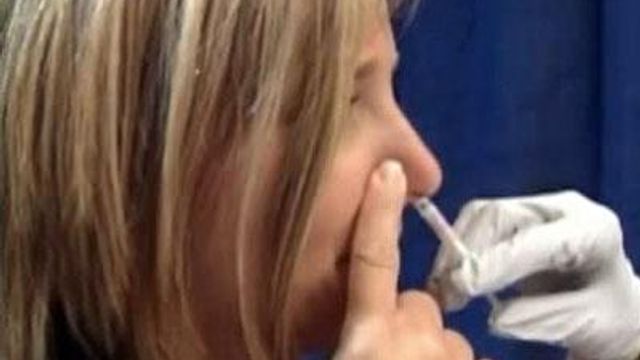Pregnant women urged to vaccinated for H1N1
Some people are afraid there won't be enough H1N1 vaccine for everyone who wants it, but Dr. David Weber, an infectious disease specialist at UNC Hospitals, said people shouldn’t be worried.
Posted — UpdatedYour browser doesn't support HTML5 video.
These women face the same complications from H1N1, so doctors recommend they get vaccinated as soon as possible.
Your browser doesn't support HTML5 video.
The next in line to receive the H1N1 vaccine are caregivers and people who live or work with children under 6 months old.
The other priority groups are as follows:
- Health care and emergency medical services personnel
- People from 6 months to 24 years of age
- Persons aged 25 through 64 years who have health conditions associated with higher risk of medical complications from influenza
Some people are afraid there won't be enough H1N1 vaccine for everyone who wants it, but Dr. David Weber, an infectious disease specialist at UNC Hospitals, said people shouldn’t be worried.
“We estimate that we'll have about 40 million doses by Oct. 15 and then 20 million doses available each week thereafter. Ultimately, the government is committed to making enough vaccine for the entire population. My guess is the vaccine will arrive faster than we can actually physically administer it,” Weber said.
The state ordered 52,000 doses of FluMist last week, with the first shipments slated for health departments. Doses were being distributed around the state on Monday.
Wake County received about 3,500 doses; 500 of those will be reserved for EMS and health care workers, Health Director Sue Lynn Ledford said.
Duke Urgent Care South, at 5716 Fayetteville Road, was the first to start distributing the nasal spray on Wednesday.
Additional shipments of vaccine are expected in coming weeks, including the injected form, which is recommended for high-risk groups like pregnant women, children under 2 or those with underlying medical conditions.
• Credits
Copyright 2024 by Capitol Broadcasting Company. All rights reserved. This material may not be published, broadcast, rewritten or redistributed.
